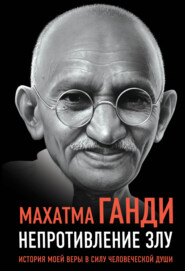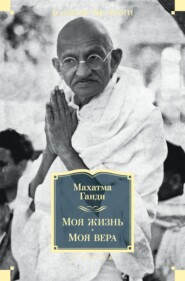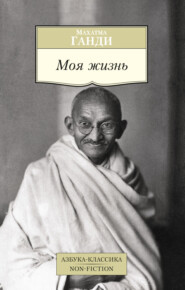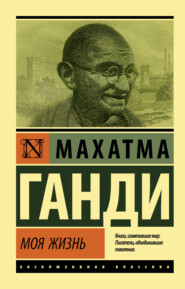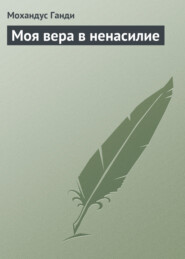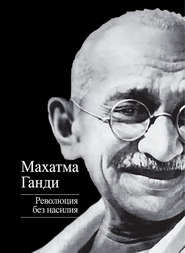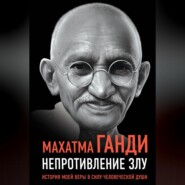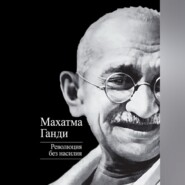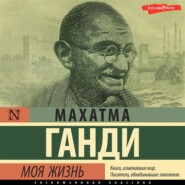По всем вопросам обращайтесь на: info@litportal.ru
(©) 2003-2024.
✖
The Story of My Life / История моей жизни
Настройки чтения
Размер шрифта
Высота строк
Поля
The clothes after the Bombay cut that I was wearing were, I thought, unsuitable for English society, and I got new ones at the Army and Navy Stores. I also went in for a chimney-pot hat costing nineteen shillings – an excessive price in those days. Not content with this, I wasted ten pounds on an evening suit made in Bond Street, the centre of fashionable life in London; and got my good and noble-hearted brother to send me a double watch chain of gold. It was not correct to wear a readymade tie and I learnt the art of tying one for myself. While in India the mirror had been a luxury permitted on the days when the family barber gave me a shave.
Here I wasted ten minutes every day before a huge mirror, watching myself arranging my tie and parting my hair in the correct fashion.
My hair was by no means soft, and every day it meant a regular struggle with the brush to keep it in position. Each time the hat was put on and off, the hand would automatically move towards the head to adjust the hair, not to mention the other civilized habit of the hand every now and then doing the same thing when sitting in polished society.
As if all this were not enough to make me look the thing, I directed my attention to other details that were supposed to go towards the making of an English gentleman. I was told it was necessary for me to take lessons in dancing, French, and elocution or speechmaking.
French was not only the language of neighbouring France, but it was a language understood all over Europe where I had a desire to travel.
I decided to take dancing lessons at a class and paid down £3 as fees for a term. I must have taken about six lessons in three weeks.
But it was beyond me to achieve anything like rhythmic motion. I could not follow the piano and hence found it impossible to keep time. What then was I to do? The recluse in the fable kept a cat to keep off the rats, and then a cow to feed the cat with milk, and a man to keep the cow and so on.
My ambitions also grew like the family of the recluse. I thought I should learn to play the violin in order to cultivate an ear for Western music. So I invested £3 in a violin and something more in fees.
I sought a third teacher to give me lessons in elocution and paid him a preliminary fee of a guinea. He recommended Bell's Standard Elocutionist as the textbook, which I purchased. And I began with a speech of Pitt's.
But soon I began to ask myself what the purpose of all this was.
I had not to spend a lifetime in England, I said to myself. What then was the use of learning elocution?
And how could dancing make a gentleman of me? The violin I could learn even in India. I was a student and ought to go on with my studies. I should qualify myself to become a barrister. If my character made a gentleman of me, so much the better. Otherwise I should give up the ambition.
These and similar thoughts possessed me, and I expressed them in a letter which I addressed to the elocution teacher, requesting him to excuse me from further lessons.
I had taken only two or three. I wrote a similar letter to the dancing teacher, and went personally to the violin teacher with a request to dispose of the violin for any price it might fetch. She was rather friendly to me, so I told her how I had discovered that I was pursuing a false idea. She encouraged me in my decision to make a complete change.
This infatuation must have lasted about three months. Being particular about dress persisted for years. But henceforward I became a student.
12. Changes
Let no one imagine that my experiments in dancing and the like marked a stage of indulgence in my life. The reader will have noticed that even then I knew what I was doing and my expenses were carefully calculated.
As I kept strict watch over my way of living, I could see that it was necessary to economize. So I decided to take rooms on my own account, instead of living any longer in a family, and also to remove from place to place according to the work I had to do, thus gaining expereince at the same time. The rooms were so selected as to enable me to reach the place of business on foot in half an hour, and so save fares. Before this I had always taken some kind of conveyance whenever I went anywhere, and had to find extra time for walks. The new arrangement combined walks and economy, as it meant a saving of fares and gave me walks of eight or ten miles a day. It was mainly this habit of long walks that kept me practically free from illness throughout my stay in England and gave me a fairly strong body.
Thus I rented a suite of rooms; one for a sitting room and another for a bedroom. This was the second stage. The third was yet to come.
These changes saved me half the expenses. But how was I to utilize the time? I knew that Bar examinations did not require much study, and I therefore did not feel pressed for time. My weak English was a perpetual worry to me. I should, I thought, not only be called to the Bar, but have some literary degree as well. I inquired about the Oxford and Cambridge University courses, consulted a few friends, and found that, if I elected to go to either of these places, that would mean greater expense and a much longer stay in England than I was prepared for. A friend suggested that, if I really wanted to have the satisfaction of taking a difficult examination, I should pass the London Matriculation. It meant a good deal of labour and much addition to my stock of general knowledge, without any extra expense worth the name. I welcomed the suggestion.
But the syllabus frightened me. Latin and a modern language were compulsory! How was I to manage Latin? But the friend entered a strong plea for it: “Latin is very valuable to lawyers. Knowledge of Latin is very useful in understanding law-books. And one paper in Roman Law is entirely in Latin. Besides a knowledge of Latin means greater command over the English Language.” This appealed to me and I decided to learn Latin, no matter how difficult it might be. French I had already begun, so I thought that should be the modern language. I joined a private Matriculation class. Examinations were held every six months and I had only five months at my disposal.
It was an almost impossible task for me. I converted myself into a serious student. I framed my own timetable to the minute; but neither my intelligence nor memory promised to enable me to tackle Latin and French besides other subjects within the given period.
The result was that I failed in Latin. I was sorry but did not lose heart. I had acquired a taste for Latin; also I thought my French would be all the better for another trial and I would select a new subject in the science group. Chemistry which was my subject in science had no attraction for want of experiments, whereas it ought to have been a deeply interesting study. It was one of the compulsory subjects in India and so I had selected it for the London Matriculation. This time, however, I chose Heat and Light instead of Chemistry.
It was said to be easy and I found it to be so.
With my preparation for another trial, I made an effort to simplify my life still further. I felt that my way of living was still beyond the modest means of my family. The thought of my struggling brother, who nobly responded to my regular calls for monetary help, deeply pained me. I saw that most of those who were spending from eight to fifteen pounds monthly had the advantage of scholarships. I had before me examples of much simpler living. I came across a fair number of poor students living more humbly than I. One of them was staying in the slums in a room at two shillings a week and living on two pence worth of cocoa and bread per meal from Lockhart's cheap Cocoa Rooms. It was far from me to think of copying him, but I felt I could surely have one room instead of two and cook some of my meals at home. That would be a saving of four to five pounds each month. I also came across books on simple living. I gave up the suite of rooms and rented one instead, invested in a stove, and began cooking my breakfast at home. The process scarcely took me more than twenty minutes for there was only oatmeal porridge to cook and water to boil for cocoa. I had lunch out, and for dinner bread and cocoa at home. Thus I managed to live on a shilling and three pence a day. This was also a period of intensive study. Plain living saved me plenty of time and I passed my examination.
Let not the reader think that this living made my life by any means a dreary affair. On the contrary the change suited me beautifully. It was also more in keeping with the means of my family. My life was certainly more truthful and my soul knew no bounds of joy.
As soon as, or even before, I made alterations in my expenses and my way of living, I began to make changes in my diet. I stopped taking the sweets and spices I had got from home. The mind having taken a different turn, the fondness for spices wore away, and I now relished the boiled spinach which in Richmond tasted insipid, cooked without spices. Many such experiments taught me that taste depended much on one's attitude of mind rather than on the tongue.
The economic consideration was of course constantly before me.
There was in those days a body of opinion which regarded tea and coffee as harmful and favoured cocoa. And as I was convinced that one should eat only articles that nourished the body, I gave up tea and coffee as a rule and took cocoa instead.
There were many minor experiments going on along with the main one: as for example, giving up starchy foods at one time, living on bread and fruit alone at another, and once living on cheese, milk and eggs. This last experiment is worth noting. It lasted not even a fortnight. The reformer who advocated starchless food had spoken highly of eggs and held that eggs were not meat. It was apparent that there was no injury done to living creatures in taking eggs. So I took eggs in spite of my vow. But the lapse was momentary. I had no business to put a new interpretation on the vow. The interpretation of my mother who administered the vow was there for me. I knew that her definition of meat included eggs. And as soon as I saw the true import of the vow I gave up eggs and the experiment alike.
Full of a new convert's zeal for vegetarianism, I decided to start a vegetarian club in my locality. The club went well for a while, but came to an end in the course of a few months. For I left the locality, according to my custom of moving from place to place periodically.
But this brief and modest experience gave me some little training in organizing and conducting institutions.
13. Shyness My Shield
I was elected to the Executive Committee of the Vegetarian Society, and made it a point to attend every one of its meetings, but I always felt tongue-tied. It was only in South Africa that I got over this shyness, though I never completely overcame it. It was impossible for me to speak without preparation. I hesitated whenever I had to face strange audiences and avoided making a speech whenever I could.
I must say that, beyond occasionally exposing me to laughter, my shyness has been no disadvantage whatever. In fact I can see that, on the contrary, it has been all to my advantage. My hesitancy in speech, which was once an annoyance, is now a pleasure. Its greatest benefit has been that it has formed the habit of restraining my thoughts. A man of few words will rarely be thoughtless in his speech; he will measure every word. My shyness has been in reality my shield. It has allowed me to grow.
It has helped me in my discovery of truth.
14. Acquaintance with Religions
Towards the end of my second year in England I came across two Theosophists, brothers, and both unmarried. They talked to me about the Gita. They were reading Sir Edwin Arnold's translation – The Song Celestial and they invited me to read the original with them. I felt ashamed, as I had read the divine poem neither in Sanskrit nor in Gujarati. I had to tell them that I had not read the Gita, but that I would gladly read it with them, and that though my knowledge of Sanskrit was meagre, still I hoped to be able to understand the original to the extent of telling where the translation failed to bring out the meaning. I began reading the Gita with them. The verses in the second chapter made a deep impression on my mind, and they still ring in my ears. The book struck me as one of priceless worth. The impression has ever since been growing on me with the result that I regard it today as the best book for the knowledge of Truth. It has afforded me invaluable help in my moments of gloom.
If one, Ponders on subjects of the sense, there springs
Attraction; from attraction grows desire,
Desire flames to fierce passion, passion breeds
Recklessness; then the memory – all betrayed —
Lets noble purpose go, and saps the mind,
Till purpose, mind, and man are all undone.
The brothers also recommended The Light of Asia1 by Sir Advin Arnold, whom I knew till then as the author only of The Song Celestial, and I read it with even greater interest than I did the Bhagavadgita. Once I had begun it I could not leave off. I recall having read, at the brothers' instance, Madame Blavatsky's Key to Theosophy.
This book stimulated in me the desire to read books on Hinduism, and made me give up the idea taught by missionaries that Hinduism was full of superstition.
About the same time I met a good Christian from Manchester in a vegetarian boarding house. He talked to me about Christianity. I narrated to him my Rajkot recollections.
He was pained to hear them. He said, “I am a vegetarian.
I do not drink. Many Christians are meat-eaters and drink, no doubt; but neither meat-eating nor drinking is enjoined by Scripture. Do please read The Bible.”2 I accepted his advice, and he got me a copy. I began reading it, but I could not possibly read through the Old Testament.
But the New Testament produced a different impression, especially the Sermon on the Mount3 which went straight to my heart. I compared it with the Gita. The verses, “But I say unto you, that ye resist not evil; but whosoever shall smite thee on thy right cheek, turn to him the other also. And if any man take away thy coat let him have thy cloak too.” delighted me beyond measure and put me in mind of Shamal Bhatt's “For a bowl of water, give a goodly meal” etc. My young mind tried to unify the teaching of the Gita, the Light of Asia and the Sermon on the Mount. That renunciation was the highest form of religion appealed to me greatly.
Beyond this acquaintance with religion I could not go at the moment, as reading for the examination left me scarcely any time for outside subjects. But I thought that I should read more religious books and acquaint myself with all the principal religions.
Part III: In India as barrister






